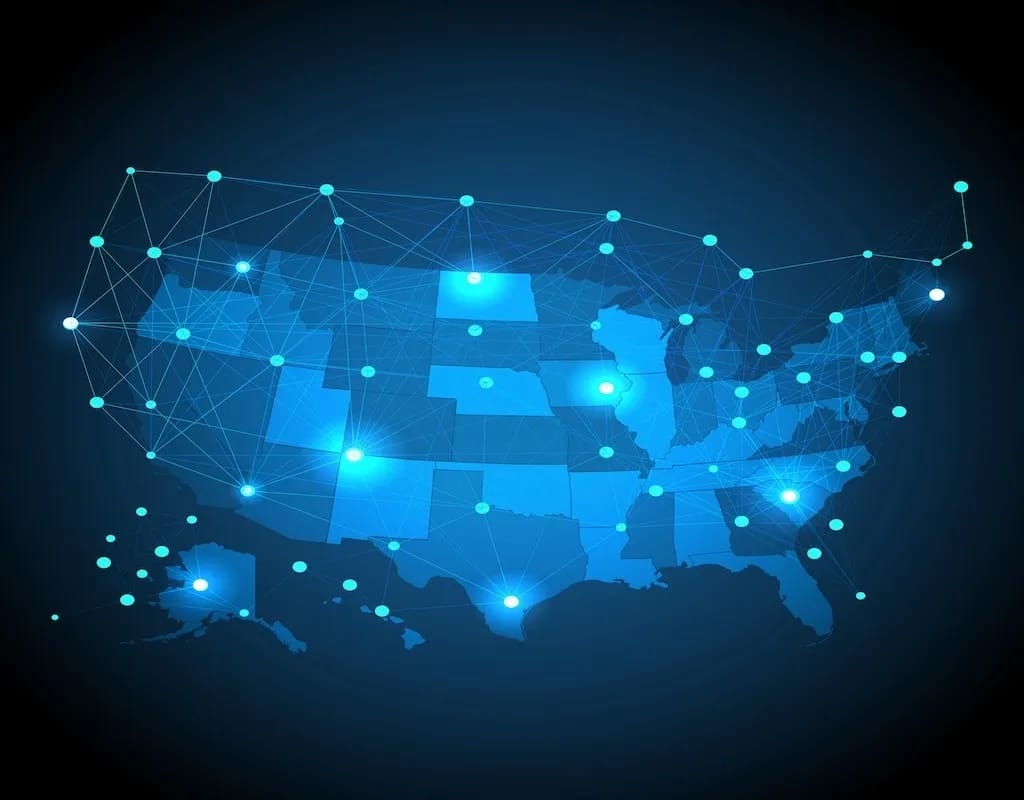
Digital Infrastructure Investment 2024
A summit uniting financial services and broadband operators
Become a Breakfast Club MemberIn-person or online attendees – or members of the Broadband Breakfast Club – have full access to Digital Infrastructure Investment Summit videos!
Video page for Digital Infrastructure Investment 2024

Digital Infrastructure Investment Program
Thursday, September 19, 2024
Why 'All-in on Open Access'?
Open access networks are gaining greater traction nationwide. In additional to major players entering the market, existing open access entities are thriving, as more cities and regions are committing to open access. Under this model, multiple ISPs can offer services over the same broadband infrastructure. The promise is greater innovation and competition, and easy entrance into the market for some.
Panel 1: Lessons From Middle Mile Open Access
Although the United States has been slow to adopt last-mile open access networks, wholesale networks have been significant in middle-mile for some time. What lessons can the last-mile take from the middle-mile?
Additionally, this panel will consider rural issues and open access. Open access is often considered impractical for rural America. Is this truly the case? Are there examples of success?
- Tad Deriso, President & CEO, Mid-Atlantic Broadband Communities Corporation (MBC)
- Mark Vasconi, President, Vasconi Consulting LLC
- Nathan Walowitz, Regional Broadband Program Director, Northwest Colorado Council of Governments (NWCCOG)
- Marissa Mitrovich (moderator), Vice President of Public Policy, Fiber Broadband Association (FBA)
Video Clips from Panel 1:
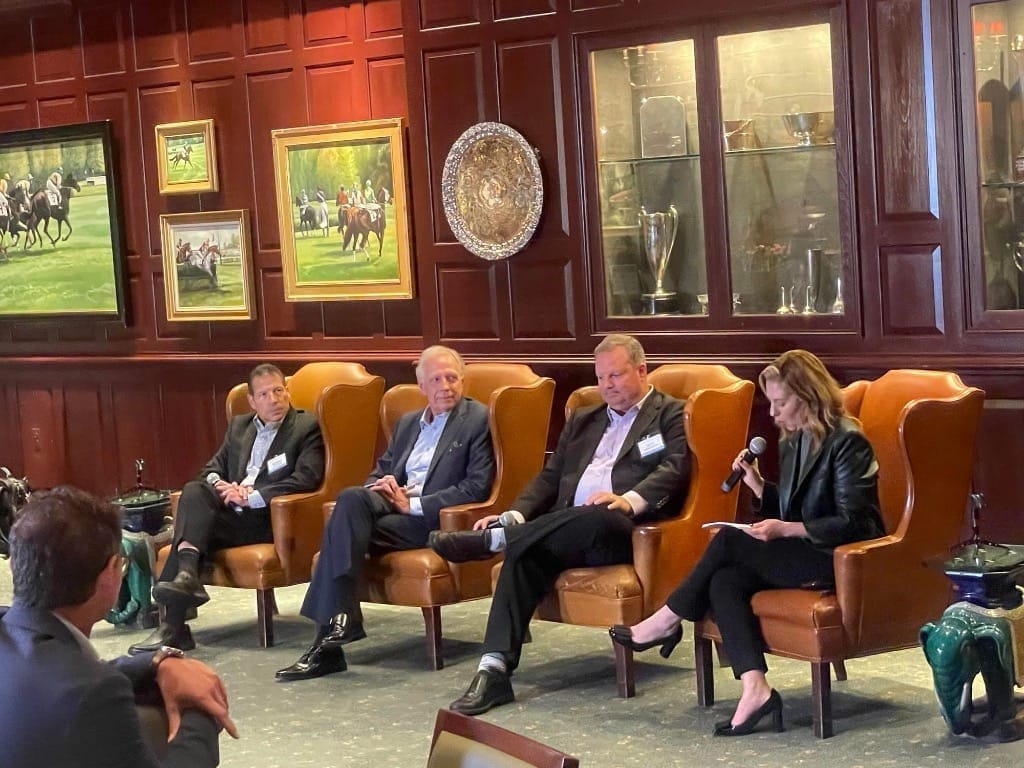
Panel 2: The Future of Last-Mile Open Access
The Broadband Equity, Access and Deployment program prefers fiber deployments, and the National Telecommunications and Information Administration encourages states to adopt selection criteria promoting the provision of open access wholesale last-mile broadband networks. What, if anything, have states been doing to prioritize open access fiber?
Additionally, this panel will consider the evolving role of major players in the wholesale markets for last-mile access. Is the landscape changing?
- Purnell Carter, Technical Director, Office of Broadband and Digital Equity, Baltimore City Office of Information & Technology
- Roger Timmerman, Executive Director, UTOPIA Fiber
- Vikash Harlalka, Communications Services, New Street Research
- Drew Clark (moderator), CEO and Publisher, Broadband Breakfast
Video Clips from Panel 2:
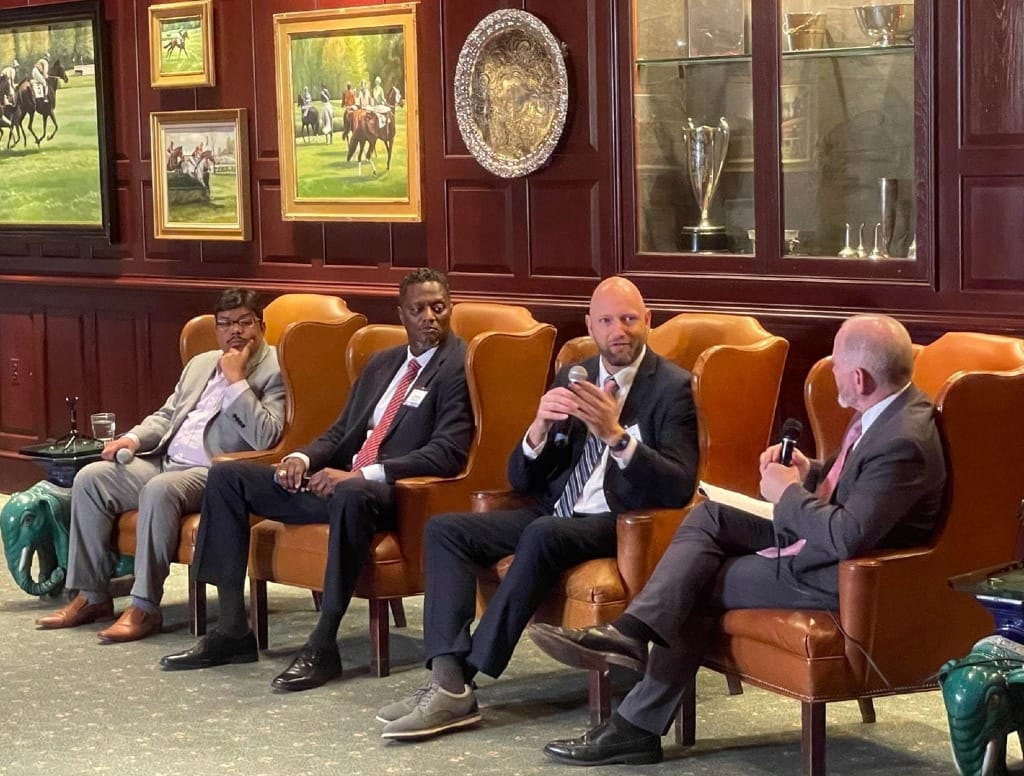
Panel 3: Steps to Build an Open Access Network
The final panel of the day will bring together the financial, legal, operational, software and marketing and sales components of open access networks. What piece-parts and players are necessary for a group of organizations to together implement a successful open access project? What is the role of public-private partnerships in open access networks?
- Scott Layman, CEO, mFiber
- Isak Finer, Chief Revenue Officer, COS Systems
- Drew Pappas, Director of Business Development, Bonfire Infrastructure Group
- Kim McKinley (moderator), Chief Marketing Officer, UTOPIA Fiber
Video Clips from Panel 3:
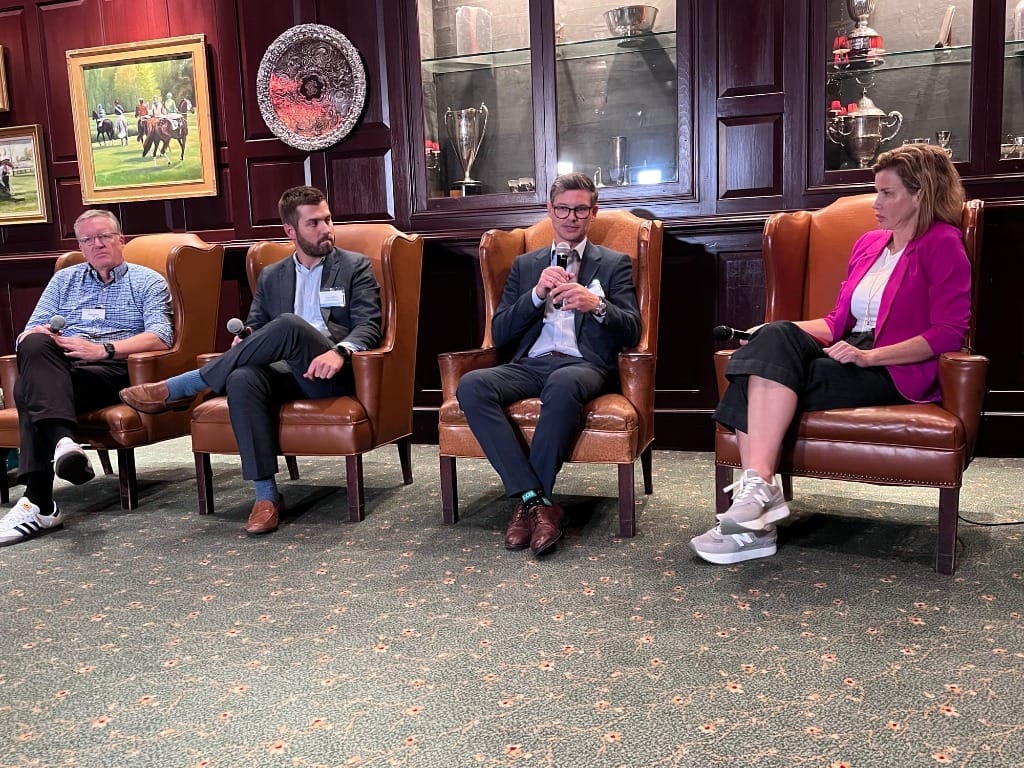
Sponsors:
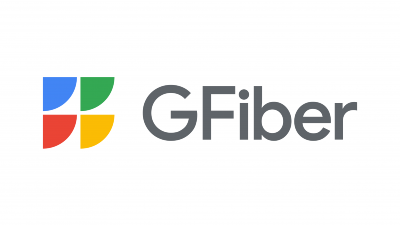
GFiber delivers fast, reliable, fairly-priced and open fiber internet service, prioritizing customer service and speed. GFiber started in 2010 as a Google-driven experiment to catalyze the gigabit internet ecosystem, and has since pioneered the gigabit and multigig internet future. For more than a decade, GFiber has maintained its $70/1 Gig base internet plan without any rate increases, and remains committed to bringing the best internet experience to customers in nearly 20 states with plans to further expand. You can find more information, check availability in your area and compare plans at www.fiber.google.com.
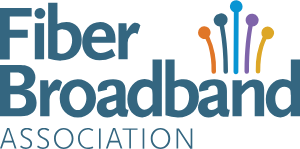
The Fiber Broadband Association is the voice of fiber. As the premier association that focuses solely on fiber, we are relentless in our work to connect every American with fiber. Because only fiber can close the digital divide, and unleash economic development that will raise the quality of life for every single one of us — providing education and job opportunities; eliminating poverty; creating sustainability and enabling innovations we haven’t even thought of yet. Fiber ensures no one gets left behind.
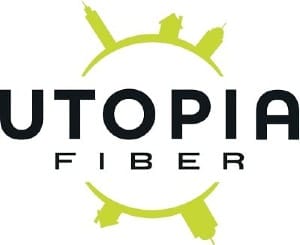
UTOPIA (Utah Telecommunication Open Infrastructure Agency) Fiber is the group of 11 Utah cities that joined together in 2004 to build, deploy, and operate a fiber to the home network to every business and household within their communities. Their network provides blazingly fast Internet speeds, phone, and television services. Using an active ethernet infrastructure and operating at the wholesale level, UTOPIA Fiber supports open access and promotes competition in all broadband and telecommunications services. It is the largest open access network in the United States.
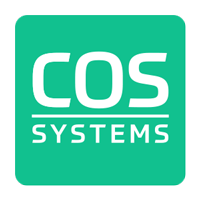
COS Systems delivers a cloud-based software platform purpose-built for broadband operators, automating everything from demand generation and sales to provisioning, billing, and field operations. Based on their business model, operators implement COS Business Engine to run full retail ISP operations or COS Wholesale Engine to orchestrate multi-provider Open Access networks. Our complementary solutions, COS FSM and COS Prospector, extend the platform with automated field service management and fast, door-to-door sales, enabling scalable growth and a modern broadband experience.
Speaker Bios:
Panel 1: Lessons From Middle Mile Open Access

Tad Deriso focuses on larger business and economic development projects and partnerships, maintaining positive relationships with MBC stakeholders and providers of capital, and expanding MBC’s relationships with regional, national, and international organizations. He has been involved with the rural telecommunications industry for over 20 years, working with rural telecommunications providers and cooperatives. He brings a deep understanding of the issues and resource needs surrounding broadband, wholesale optical transport services, and rural economic development issues.

Over his 40-year career, Mark Vasconi has a long history in telecommunications in both the private and public sectors. He was AT&T's Senior Director of Government Affairs in Alaska; served for over a decade as the Directory of Utility Analysis at the Washington Utilities and Transportation Commission; and for the last two years of his career, he served as the Director of the Washington State Broadband Office. Mark has both a BA and MA in Economics from the University of Montana where he focused on regulatory economics and antitrust analysis. While Mark retired in January of this year, he brings an informed perspective to the issue of broadband deployment to rural America.

Nate Walowitz is an innovative telecommunications and technology program executive serving as the Regional Broadband Program Director for the Northwest Colorado Council of Governments (NWCCOG). Since 2014, his NWCCOG Broadband technical advisory role to local governments has led to the deployment of broadband services in unserved and underserved communities across Colorado. This has brought over $40M in state grant funds to NW Colorado community broadband projects. In early 2020, Mr. Walowitz created and launched Project THOR a publicly owned open access middle mile transport network. The Project THOR cooperative network has brought over 800G of resilient transport capabilities to rural communities across 10 counties in NW Colorado. Project THOR supports mission critical public safety communication, local government broadband access, smaller ISPs, and local governments to support operations and last mile broadband deployments.

Marissa Mitrovich is the Fiber Broadband Association’s vice president of public policy, leading their efforts before Congress, the White House and regulatory agencies in Washington, D.C. She brings more than two decades of experience in governmental affairs and telecom, including previous roles as the vice president of federal legislative affairs for Frontier and vice president of public policy for Verizon, where she interfaced with the administration and worked on state government affairs issues and corporate responsibility initiatives. Mitrovich also brings experience in workforce development and public-private partnerships from her time as vice president of program development for the Wireless Infrastructure Association.
Panel 2: The Future of Last-Mile Open Access
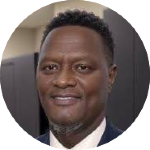
Purnell Carter, Sr., is the Technical Director for the Office of Broadband and Digital Equity, a division under the Baltimore City Office of Information & Technology. In this role, he is instrumental in advancing Baltimore City’s Digital Inclusion Strategy, overseeing both short-term and long-term technical initiatives. His efforts are focused on expanding the city's middle-mile infrastructure, implementing fiber-to-the-premises (FTTP) solutions for low-income housing communities, developing free wireless zones in targeted areas, and ensuring the sustainability of these vital resources. With over 20 years of experience in Information Technology, he brings a wealth of knowledge and expertise to his position. He is passionate about serving the community and is committed to closing the digital divide in the city, where he has strong ties. His work is dedicated to ensuring that all residents have access to reliable and affordable broadband services, thereby fostering greater digital equity throughout Baltimore.

Vikash Harlalka is a member of the Communications Services team at New Street Research focusing mainly on the large-cap broadband operators. Vikash has been covering the US Cable, Media and Telecom industries for over 15 years and has extensive knowledge about the broadband industry. He is a Chartered Accountant, holds an MBA from IIM Ahmedabad and is a CFA Charterholder.

Roger Timmerman has been serving as UTOPIA Fiber’s Executive Director since 2016 and has been a technology management professional in telecommunications and information technology for over 15 years. Roger has been designing and building networks throughout his career in various roles including Vice President of Engineering for Vivint Wireless, CTO for UTOPIA Fiber, Network Engineer for iProvo, and Network Product Manager for Brigham Young University. Roger earned his Bachelor of Science and Master of Science degrees in Information Technology from Brigham Young University.

Breakfast Media LLC CEO Drew Clark has led the Broadband Breakfast community since 2008. An early proponent of better broadband, better lives, he initially founded the Broadband Census crowdsourcing tool to collect and verify broadband data left unpublished by the Federal Communications Commission. As CEO and Publisher, Clark presides over the leading media community advocating for higher-capacity internet everywhere through topical, timely and intelligent coverage. Clark also served as head of the Partnership for a Connected Illinois, a state broadband initiative.
Panel 3: Steps to Build an Open Access Network
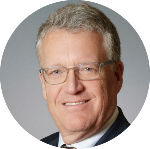
Scott Layman is CEO of mFiber. He is a senior fiber industry executive with over 25 years’ experience and a proven ability to lead organizations, raise funds, improve operational efficiency and to more effectively leverage organizational assets to improve profitability for technology and telecommunications companies in both the North America and Europe. Under Scott’s leadership, Meridiam Fiber will pass approximately 500,000 premises in Memphis, Central Indiana, Alabama’s Black Belt Region and suburban Edmonton. A leader in P3 infrastructure development, Meridiam Fiber is designing, building, financing and managing utility-like open wholesale access fiber networks in communities traditionally underserved by legacy telecoms providers.

Isak Finer is the CRO at COS Systems, the company behind the BSS/OSS platform COS Business Engine automating operations of fiber networks. Isak is regularly speaking on Demand Aggregation, Open Access Networks and automation of network operations. He has previously worked with business development, sales analysis and sales management at a number of global companies. He holds an MSc degree in Industrial Engineering and Management at Chalmers University of Technology, Sweden, and has further academic experience within economics and entrepreneurship from Uppsala University, and US universities Stanford and Berkeley.

As Director of Business Development, Drew Pappas is responsible for building long-term relationships with municipalities, Tribes, ISPs, co-ops, and private entities within the markets Bonfire works in. He acts as a liaises with different community leaders to show the tremendous value that high-speed internet connections can bring to a community. He believes that broadband is for all, not for some, and is a strong proponent for eradicating digital inequity with infrastructure and services that last for generations. While spending the last seven years in the telecommunications industry, Drew has worked in multiple fields including construction, OSP engineering, broadband consulting, and now business development. He works closely with our Bonfire's Open Access operations team and has been instrumental in helping our partners receive over $125M in state and federal funding since 2021. Drew is crucial in working with communities to help clarify stakeholder needs, navigate corporate process, and making sure that Bonfire brings choice, innovation, and competition into every market we work with.

Kim McKinley, UTOPIA Fiber’s chief marketing officer, joined the company in 2010. She has been a driving force in making UTOPIA Fiber the fastest growing and highest rated open access network in the country. In her role as the CMO, McKinley oversees the marketing, sales, order fulfillment and customer service departments. Before coming to UTOPIA Fiber, she worked in the hospitality marketing industry on the east coast. McKinley has a bachelor’s degree in business administration from the College of Charleston in Charleston, South Carolina.
Previous Digital Infrastructure Investment programs


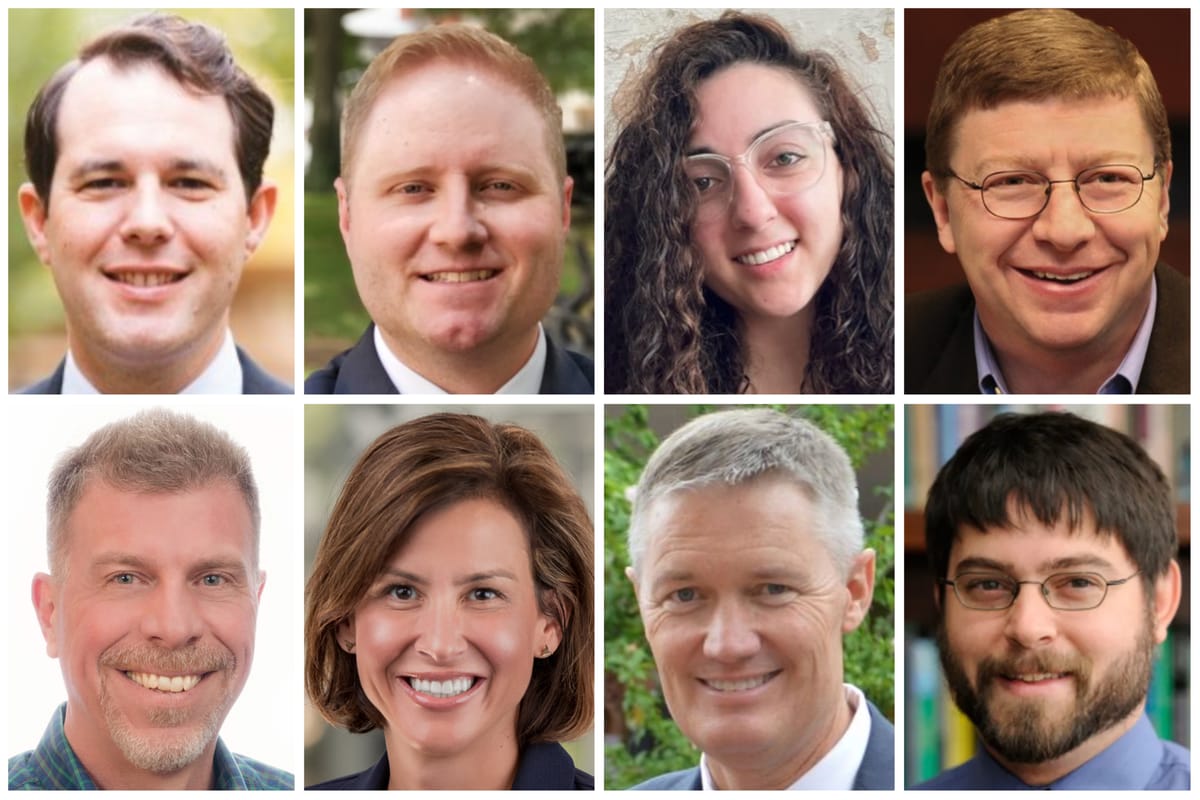

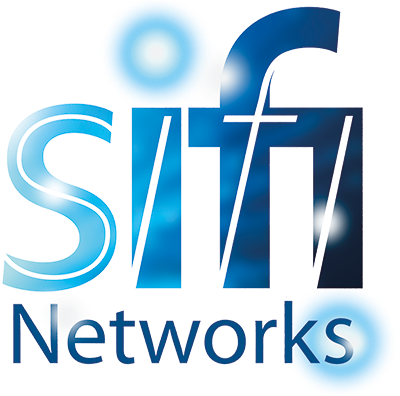

Want more information?
See other Open Access articles on Broadband Breakfast

Broadband Breakfast Leads in Open Access Coverage
Broadband Breakfast has been at the forefront of reporting on Open Access Infrastructure for more than 10 years, long before it became a mainstream topic in the telecom world. Our dedication to this crucial aspect of digital infrastructure development sets us apart:
- Comprehensive Analysis: From investment opportunities, technical details to policy implications, we cover all aspects of Open Access development.
- Expert Insights: Our team has cultivated a network of industry leaders, policymakers, and innovators in open access, bringing you unparalleled expertise.
- Consistent Reporting: For more than a decade, we've continuously tracked the evolution of Open Access initiatives across the United States.
- Pioneering Coverage: We recognized the potential of Open Access models early, providing in-depth analysis when few others were discussing the concept.
Join us at the Digital Infrastructure Investment Summit to tap into the Broadband Breakfast community of knowledge on Open Access and connect with those shaping the future of broadband infrastructure.
Exclusive Broadband Breakfast Series on Open Access Networks:




Other Broadband Breakfast Events
